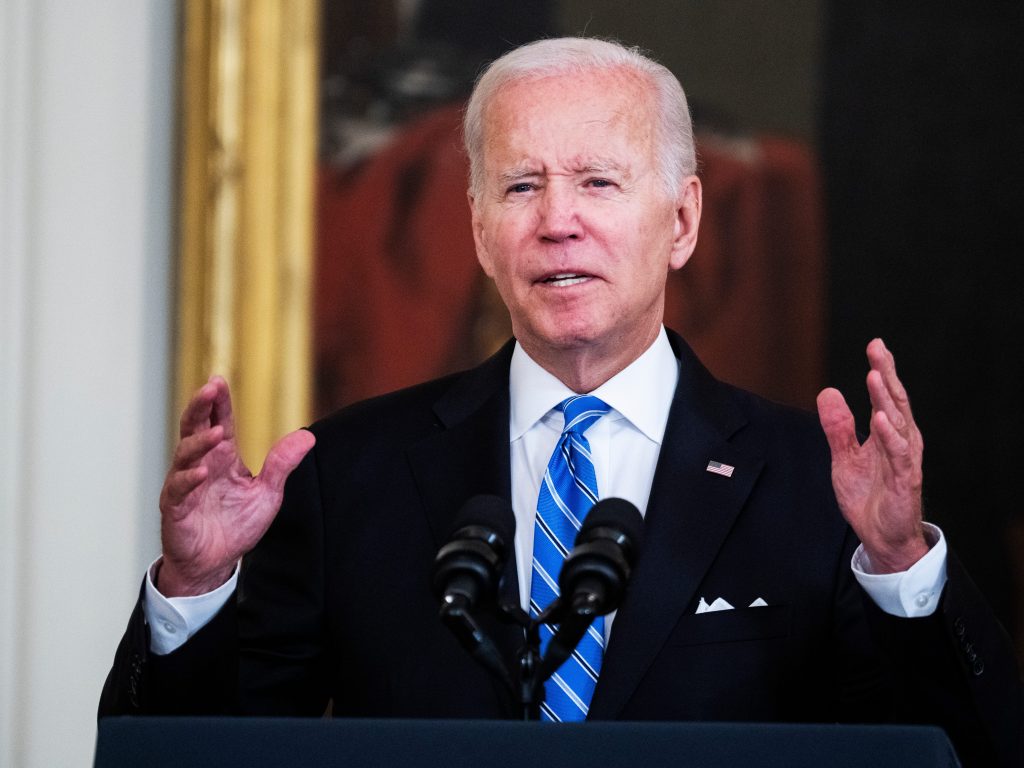- President Joe Biden expanded federal programs for climate resiliency and developing offshore wind.
- The actions fell short of a climate emergency declaration that Senate Democrats are demanding.
- Policy uncertainty could slow growth in renewable energy, analyst says.
President Joe Biden said he views climate change as an emergency but stopped short of officially declaring it one on Wednesday. That move could come in the days ahead when Biden said he would unveil more executive actions to combat the crisis.
For now, the president took more limited steps including spending $2.3 billion on climate-resiliency grants to help states and tribes prepare for natural disasters, making it easier for low-income families to purchase air conditioners, and paving the way for offshore wind development in the Gulf of Mexico.
Senate Democrats and climate activists want Biden to go further by declaring a national climate emergency. It's one of the few options his administration has left to tackle the crisis after Democratic Sen. Joe Manchin of West Virginia last week dashed hopes that Congress would pass more than $300 billion in clean-energy tax breaks and other climate spending before November's midterm elections.
Manchin's vote is critical in an evenly divided Senate, where Democrats are trying to push through Biden's economic agenda by using a budget maneuver that skirts a Republican filibuster.
The blow followed the Supreme Court's decision earlier this month to limit the Environmental Protection Agency's authority to regulate greenhouse-gas emissions from power plants. The agency is expected to draft narrower rules, but without new legislation, it's all but guaranteed the US won't slash planet-warming pollution in half this decade — a promise it made under the Paris climate agreement.
Current policies put the US on track to reduce emissions by between 24 and 35% below 2005 levels by 2030, according to an analysis by the Rhodium Group.
By declaring the climate crisis a national emergency, Biden could redirect government funding to renewable-energy projects in places like military bases and to the electric-vehicle industry. It also could empower Biden to reinstate a ban on crude-oil exports and provide some legal cover to stop offshore oil and gas drilling, though such moves are unlikely against the backdrop of high gas prices and inflation.
Biden has already invoked the Defense Production Act to boost manufacturing of solar parts, energy-efficient heat pumps, and equipment to make clean fuels and use critical minerals. The list could be expanded to more EV technology.
For years, Democratic Sen. Jeff Merkley of Oregon has been urging Biden to declare a climate emergency. A staff member for Merkley told Insider that the administration was still considering the move but acknowledged that it wasn't a panacea for a climate crisis fueling deadly heat waves and wildfires in Europe and other natural disasters around the globe. A national climate emergency must be paired with new legislation and regulations, the staffer said.
"The inaction by Congress and the SCOTUS decision means Biden has a narrow path for anything meaningful," said Safak Yucel, an assistant professor of operation management at Georgetown University. "Renewables are doing well even without strong support from any administration because the economics makes sense, but all this policy uncertainty is hampering growth."
Yucel added that even if Biden took executive action, future administrations could unravel the measures.
"Will the policy be in place for a year, two years?" he said. "That's the biggest concern I have."
